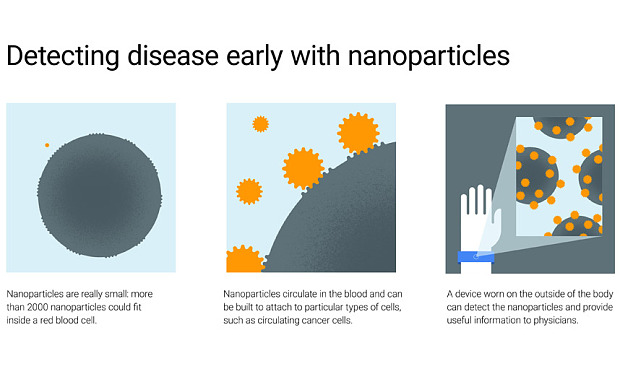Google is working on a technology that is for diagnosing cancer, imminent heart attacks, and other critical medical conditions before their onset. The company is designing an ingestible pill containing disease-detecting nanoparticles that would travel through a patient's bloodstream in an effort to identify abnormal cells that lead to life-threatening diseases.
The project was revealed by Andrew Conrad, the head of life sciences at Google X, the company's research division, at the Wall Street Journal Digital conference. "What we are trying to do is change medicine from reactive and transactional to proactive and preventative", he said.
According to Conrad, nanoparticles would combine a magnetic material with antibodies or proteins that can attach to and detect other molecules inside the body. The search giant is also working on a wristband that would use magnetism to concentrate the nanoparticles temporarily at one place and use light and radio waves to ask them what's going on with the body.

The technology would also allow cancer cells to show up on an MRI scan at a much earlier stage than is currently possible.
This isn't Google's first foray into healthcare, the company has already developed a contact lens that is aimed at helping diabetes patients keep track of their glucose levels. The lens, which contains a glucose sensor, antenna, capacitor, as well as a chip, takes glucose readings twice every second and sends the information to an external monitoring device via radio frequencies.
In addition, Google has also invested in a number of biotech and life science companies including Calico, which focuses on combating aging.